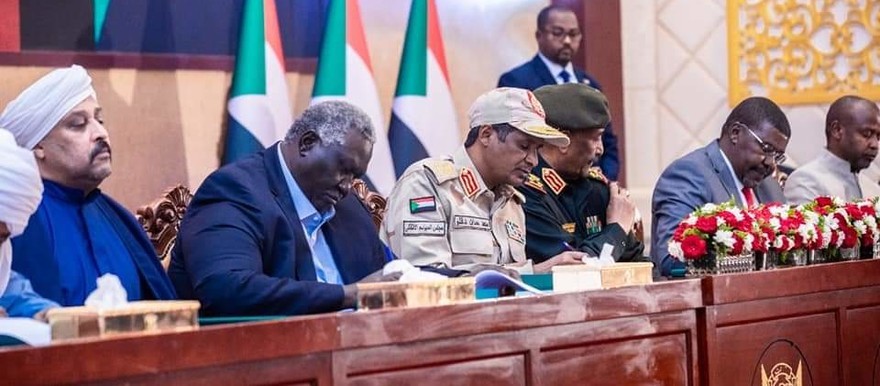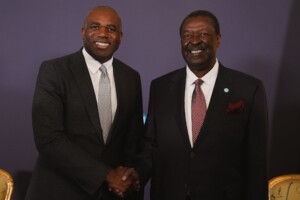Egyptian initiative to break Sudan political impasse

In a bid to break the political stalemate between a number of political groups in Sudan over important but thorny in the Final Agreement on the coming transitional period, Egypt has presented a new platform for dialogue between the parties.
On Monday, the Director of the Egyptian General Intelligence Directorate (EGID), Maj Gen Abbas Kamel, held separate meetings with Lt Gen Abdelfattah El Burhan, President of the Sovereignty Council and Commander of the Sudan Armed Forces, leaders of the Forces for Freedom and Change-Central Council (FFC-CC) and of the FFC-Democratic Block alliance of rebel movements and the Democratic Unionist Party.
Sources reported that Kamel presented a new platform for dialogue between the parties, to be held under Egyptian auspices.
The press office of the Sovereignty Council said that the Egyptian Intelligence director conveyed an oral message from Egyptian President Abdelfattah El Sisi to El Burhan, regarding bilateral relations.
Radio Dabanga has not been able to get in contact yet with the FFC factions for comments on the news.
The Vice-President of the Sovereignty Council, Lt Gen Mohamed ‘Hemeti’ Dagalo yesterday said that he considers the Framework Agreement signed by the military, the FFC-CC, and a number of other opposition groups under auspices of the AU-IGAD-UN Trilateral Mechanism, on December 5, to be followed by a Final Agreement, planned for this month, “the only way out of the current impasse”.
The Framework Agreement was signed by the military, the FFC-CC, and a number of other opposition groups under auspices of the AU-IGAD-UN Trilateral Mechanism, on December 5.
During his address to Daju and Rizeigat tribal leaders in Beleil, South Darfur, he stated that “we are proceeding with the agreement, whether the people like it or not”.
The signing of the Final Agreement is limited to the signatories of the Framework Agreement, he explained. Everyone however will be able to participate in the dialogue workshops organised this month to discuss the five remaining issues that have to be agreed on before a final agreement can be signed.
The five important but thorny issues concern justice and transitional justice, security and military reform, approaches to empowerment removal*, possible amendments to the Juba Peace Agreement, and governance issues regarding eastern Sudan.
For Hemeti, the 2020 Juba Peace Agreement forms a red line. “There is no room for discussion about it,” he emphasised.
Doubts
Not everyone is convinced of the possibility of reaching a final agreement on the five contentious issues.
Economic and political analyst Bakri El Jak told Radio Dabanga that “all these issues are mines” and “they have not been dealt with in a transparent way so far”.
He warned that the Framework Agreement which “faces complex factors” may bring about “a lame government” instead of political stability.
As for the reform of the various military and security forces, El Jak said that the nature of the state has to be defined first, after which the role of the military and security institutions can be discussed. This should be followed by a social contract and a joint vision for the future of the country.
The analyst ruled out that the security arrangements stipulated in the 2020 Juba Peace Agreement can be implemented. “This agreement is not enforceable for reasons related to financial capabilities for demobilisation and the lack of an integrated political vision of the security arrangements.”
Tareg Muheisi, leading member of the SPLM-Democratic Revolutionary Movement founded by ex-rebel leader Yasir Arman, told Radio Dabanga that the signatory parties to the Framework Agreement “are moving forward”, and said that “the coming period will witness a number of workshops and conferences with the participation of a wide segment of the Sudanese”.
Asked about the financial problems concerning the implementation of the security arrangements in the Juba Peace Agreement, Muheisi said he hopes that “the flow of foreign financial aid frozen after the military coup [of October 2121] will be resumed again after the formation of a new civilian government”.











 and then
and then